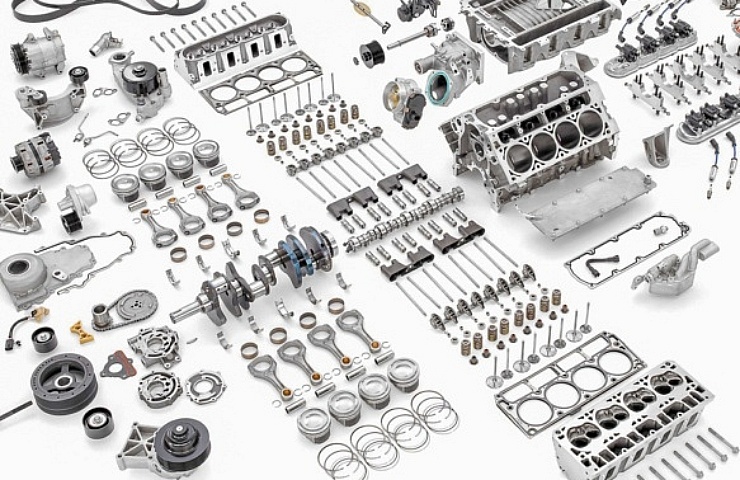Unlocking Your Ride: The Ultimate Guide to Auto Parts Stores
When it comes to maintaining and repairing your vehicle, knowing where to find reliable auto parts is crucial. Whether you are a seasoned mechanic or a weekend warrior, having access to an auto parts store can save you time, money, and frustration. These stores are essential resources for anyone looking to keep their ride in top shape, offering everything from basic maintenance items to specialized components.
In this guide, we will navigate the world of auto parts stores to help you understand what to look for and how to get the most value from your shopping experience. From choosing the right store to understanding the various parts available, our goal is to empower you with the knowledge necessary to tackle any automotive project confidently. Let's unlock your ride and explore the wealth of options that auto parts stores have to offer.
Types of Auto Parts Stores
When it comes to auto parts stores, there are several types catering to different needs. One of the most common types is the retail auto parts store. These are the familiar local shops that offer a wide range of products, from basic maintenance items like oil and filters to more specialized parts. They typically have knowledgeable staff who can assist customers in finding the right parts and offer advice on repairs. Retail auto parts stores are convenient for DIY enthusiasts and those looking to complete quick repairs.
Another type is the online auto parts store. With the rise of e-commerce, many consumers now prefer to shop for auto parts online due to the convenience and often wider selection. Online retailers can offer competitive pricing and detailed product descriptions, allowing customers to compare parts easily. However, the downside is the lack of immediate availability, as shipping times may vary. It's essential to check return policies as well, especially when ordering parts that may not fit.
Lastly, there are specialized auto parts stores that focus on specific brands or types of vehicles. These stores often carry performance parts, aftermarket accessories, and even vintage components. Enthusiasts looking to upgrade their vehicles frequently turn to these specialized shops for high-quality parts tailored to their needs. While they may not offer the same breadth of inventory as retail stores, their expertise can be invaluable for those seeking particular solutions for their automotive projects.
Navigating the Auto Parts Store

When entering an auto parts store, the first thing to do is familiarize yourself with the layout. Most stores are organized by categories such as engine components, brakes, electrical systems, and more. Take a moment to look around and note where the most commonly needed sections are located. This will save you time later on as you search for specific items.
Once you understand the layout, it's important to know what you need before asking for help. Having the make, model, and year of your vehicle can significantly assist store staff in locating the right auto parts for you. If you're unsure of what you need, consider bringing in any old parts or a service manual, which can provide valuable clues and specifications.
Don't hesitate to ask for assistance if you're having trouble finding what you need. Store employees are often knowledgeable and can guide you to the correct aisle or suggest alternatives. Additionally, take advantage of any available tools or resources within the store, like catalogs or computer systems, to help identify the right components.
Tips for Finding Quality Auto Parts
When looking for quality auto parts, it is essential to do your research and know what you need. Start by identifying the specific part required for your vehicle and check your owner’s manual for details. Online databases and forums can also provide valuable insights and reviews on various auto parts. Make a list of reputable brands and products that suit your requirement. This will help you avoid low-quality choices and ensure that you invest in parts that meet industry standards.
Another valuable tip is to shop around and compare prices at different auto parts store s, both online and in-person. Prices can vary significantly depending on the retailer and the brand. While it may be tempting to go for the cheapest option, remember that lower prices can sometimes mean lower quality. Look for stores that offer warranties or return policies on their parts, as this can be a good indicator of the part's quality. Additionally, don’t hesitate to ask clerks for recommendations based on your needs and vehicle type; their expertise can be a great resource.
Lastly, consider buying from auto parts stores that stock OEM (original equipment manufacturer) parts for your specific vehicle. These parts are designed to fit and function precisely as the original components and often come with a manufacturer's warranty. If OEM parts are too costly, look for high-quality aftermarket parts from well-known manufacturers. Read reviews and gather feedback from other customers to gauge their experiences with specific parts. Making informed decisions will ensure that you find reliable auto parts that enhance your vehicle's performance and longevity.